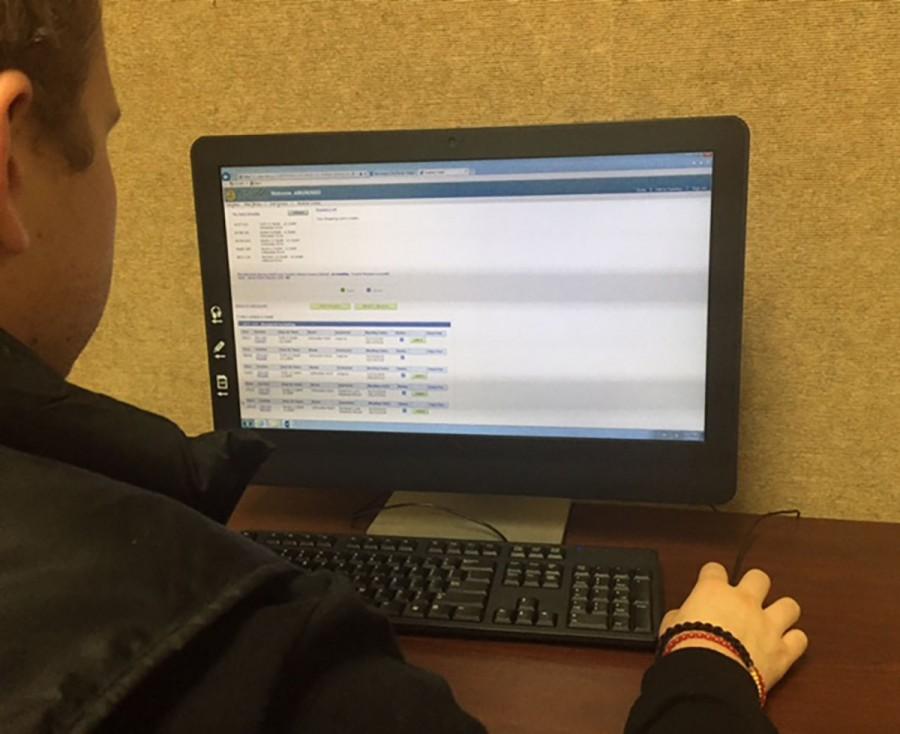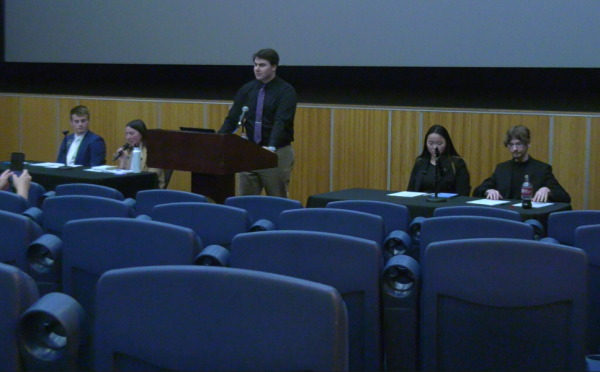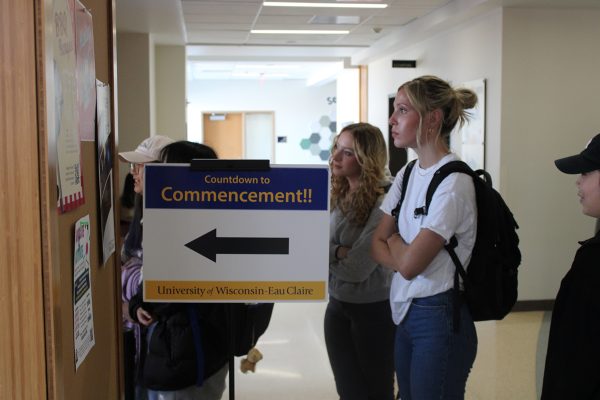Scheduling classes proves difficult after budget cuts
Student demand for classes is being monitored in order to assure class availability
Photo by Lauren Kritter
After 6,000 seats were cut in classes due to the loss of instructional positions, some students struggled to register for all of their spring semester classes.
December 9, 2015
It’s 7:42 a.m., just in time to register for spring semester classes at 7:45 a.m. After logging on, a student comes to find two classes have been filled overnight.
Instead of going back to sleep until class starts, the process of reworking next semester’s schedule begins in order to get in all the classes needed. Samantha Sonnee, a junior accounting student, went through a similar situation about a month ago when trying to register for her spring semesters classes.
Sonnee said she had difficulty getting into a number of her classes and believes the reduction of class sections available to students is one of the main reasons.
“The sections in each class have drastically gone down,” Sonnee said. “For two of my classes, there was only one professor with one or two sections available.”
Associate Vice Chancellor for Academic Affairs and Dean of graduate studies Michael Wick said he dealt with a rise in conflict this semester while students’ spring register dates took place.
Wick said a lot of phone calls were received by the dean, Academic Affairs and himself, showing the heightened concern from the students.
“It’s great in the sense that people are telling us about their issues,” Wick said. “What’s not so great is that they are running into this trouble.”
After the 69 faculty were cut due to the budget cuts, the shortage in available seats in classrooms came down from last spring by around 6,000.
Academic Affairs tried to accommodate this by moving some high demand classes into large lecture halls where more students would fit. The number of faculty in each area of study was moved around to adhere to departments such as chemistry and biology, where student demand for courses was highest, Wick said.
Wick said, with not knowing exactly where student demand would flow, Academic Affairs had to make some last-minute shifts. The hope for next fall semester is for it to be a little easier for the university to predict the classes demanded by students and make sure there are enough openings in those areas, Wick said.
Sonnee said having to go to school and maintaining a job puts stress on her weekly schedule. With her limited availability it makes it even harder for her to schedule classes.
Maintaining her job is just as crucial, she said, because she needs to be able to make a certain amount of money to pay for her schooling.
“When school conflicts with work and students need to make a certain amount of money to pay off school,” she said, “they’ll drop out.”
The current plan is to monitor freshman registration next fall, Wick said, and study where the instructional individuals were lost to try and rebalance some areas and help with the problem.
“We don’t need this extra stress on students,” Wick said.
Wick said he knows there will be a few bumps in the road but hopes graduation dates won’t be delayed and students will continue to speak up when they are having scheduling issues.











